Spring 2022 Virtual CIHR-III New Investigators Forum
March 29 - March 31, 2022


Welcome to the 8th New Investigator Forum (NIF) 2022
The Canadian Institutes of Health Research Institute of Infection and Immunity (CIHR-III) is committed to supporting the next generation of infection and immunity researchers in Canada to achieve the highest possible level of scientific excellence. Recognizing the unique challenges faced by early career researchers, CIHR-III is pleased to host the 8th CIHR-III New Investigator Forum (NIF), an event dedicated to supporting and promoting the professional development of early career researchers and late-stage post-doctoral researchers or research associates whose research is relevant to CIHR-III’s mandate.
Welcome message
-
Welcome Message from Scientific Director, Dr. Charu Kaushic

Dear Participants,
On behalf of the CIHR Institute of Infection and Immunity (III), I am very pleased to welcome you to the 8th New Investigator Forum (NIF) 2022.
After unfortunate delays due to COVID-19, we are thrilled to bring back this popular forum where we offer senior trainees and new investigators working in the infection and immunity field, a unique opportunity to network with peers and connect with renowned senior scientists through informal interactions and scientific collaboration.
As part of our new Strategic Plan, CIHR-III is committed to supporting the next generation of infection and immunity researchers in Canada to achieve the highest possible level of scientific success. We have a thriving infection and immunity research community whose tireless efforts have led Canada through the COVID-19 pandemic. Now we must continue to build on our successes and foster a more connected, equitable, inclusive, and diverse next generation of leaders, well-equipped to solve the complex global issues and the emerging health challenges of the 21st century.
In collaboration with an outstanding NIF Planning Committee, which brought together senior III leaders and new investigators, we have designed a program that offers you an essential guide to skills you will need for success as you start your independent career. We hope you will take full advantage of the program through your participation and interactions to get the most benefit from this forum.
A heartfelt thanks to the planning committee and speakers who maintained their commitment through the last 2 years of COVID-19 related delays and came back last Fall to re-dedicate their energy to complete the meeting program. A big thanks to other III leaders and colleagues who agreed with short notice, to generously give their time to run the peer review panels, provide insightful talks and moderate discussions. And of course, none of this would be possible without my institute team, who made this workshop come to life, despite the overload of COVID-19 work they continue to carry. Finally, we are very grateful to our CIHR colleagues in Ottawa who provided us steady support through the whole process.
I look forward to a successful meeting and getting to meet each one of you. I hope you will enjoy the workshop, gain useful insights, and make some lifelong connections!
Sincerely,
Charu Kaushic, PhD
Scientific Director
Canadian Institutes of Health Research (CIHR)
Institute of Infection and Immunity (III) -
Welcome from the Co-Chairs Drs. Keith Fowke and Shelly Bolotin


Dear colleagues,
It is with great pleasure that we welcome you to the 8th New Investigator Forum of the CIHR's Institute of Infection and Immunity.
The Forum's success will be from fostering an environment that is open, collaborative, and respectful, be it by your participation in the different events or by your feedback that serves to improve these activities.
The pandemic has been a source of anxiety for many, including the global scientific community, particularly for new investigators. The organizing committee has consequently developed a program that will cover many topics including the various funding opportunities offered by CIHR; grantsmanship; the grant review process; equity, diversity and inclusivity; knowledge mobilization and some discussion on navigating the beginning of your career.
We encourage you to take advantage of this event to network with new investigator peers and to take the opportunity to discuss with the Forum's different speakers. They were selected for their expertise and are all eager to lend you a hand. Starting a career as an independent researcher can bring a lot of stress and often a sense of isolation, particularly during a pandemic. This Forum will allow you to interact with others, and hopefully establish connections that will serve you throughout your career.
We are confident this Forum will benefit you, just as it has for participants from past editions (at least that’s what the evaluations report back). Remember, the more you take an active part, the more you will benefit from this opportunity.
We look forward to meeting all of you.
Sincerely,
Keith Fowke, PhD
Head, Department of Medical Microbiology & Infectious Diseases
Professor, Departments of Medical Microbiology and Community Health Sciences,
University of ManitobaAnd
Shelly Bolotin, PhD
Associate Professor, Director of Centre for Vaccine Preventable Diseases
University of Toronto
Objectives
To promote the visibility and success of Canadian new investigators in the disciplines of infection and immunity by:
- facilitating interaction, learning, collaboration, and networking among new investigators and between investigators and other participants; and
- fostering mentoring, training, and knowledge sharing between investigators, senior academics, CIHR staff and other infection and immunity stakeholders within an interdisciplinary environment.
To foster the development of a range of skills required to establish and maintain a successful research career by:
- discussing opportunities and strategies for addressing research career challenges;
- familiarizing the new investigators with the Canadian funding landscape, including CIHR programs, peer-review, and alternative funding sources; and
- optimizing the new investigators' ability to communicate and leverage the results of their work with various stakeholders including the media and the public.
Program
All times in ET
Tuesday, March 29, 2022
| 12:00 – 12:10 pm | Welcome, Objectives and Goals of the Forum
|
| 12:10 – 1:40 pm | CIHR 101 Part 1: CIHR and III Overview
|
| 1:40 – 2:50 pm | Breakout Group Session 1: The Elevator Pitch
|
| 2:50 – 3:00 pm | Stretch Break |
| 3:00 – 4:00 pm | Grantsmanship
|
Wednesday, March 30, 2022
| 12:00 – 12:30 pm | Mock Peer Review Opening Remarks, Overview, and Introduction of Chairs
|
| 12:30 – 3:30 pm | Mock Peer Review Panels: Breakout Groups Each Participant has been assigned to one of the panels below according to their preference:
|
| 3:30 – 3:45 pm | Stretch Break |
| 3:45 – 4:30 pm | Debrief and Panel Discussion
|
| 4:30 – 4:45 pm | Stretch Break |
| 4:45 - 5:30 pm | Networking Event: Come join the Scientific Director of III, NIF co-chairs, organizing committee, speakers, and peers for an opportunity to network (optional) |
Thursday, March 31, 2022
| 12:00 – 12:55 pm | Equity, Diversity, and Inclusion Matters
|
| 12:55 – 1:10 pm | Stretch Break |
| 1:10 – 2:05 pm | Career Development
|
| 2:05 – 3:00 pm | Research Program Management
|
| 3:00 – 3:15 pm | Stretch Break |
| 3:15 – 3:45 pm | Knowledge Mobilization
|
| 3:45 – 4:30 pm | Breakout Group Session 2: Career Development Each participant has pre-selected their area of interest. All breakout groups will also include discussion on Work-Life Balance considerations.
|
| 4:30 – 4:45 pm | So long, NIF 2022
|
Event details

Dates
- Tuesday March 29, 2022: 12:00 pm – 4:00 pm ET
- Wednesday March 30, 2022: 12:00 pm – 4:30 pm ET
- Networking Event: 4:45 pm – 5:30 pm ET
- Thursday March 31, 2022: 12:00 pm – 4:45 pm ET
Location
Virtually through Zoom
How do I access the Forum?
The Institute of Infection and Immunity (III-IMII@cihr-irsc.gc.ca) sent an e-mail and calendar invite on Friday March 25th containing the Zoom link and passcode for each day of the Forum. Note that the access to this event will be restricted to registered participants only. We ask that you do not circulate the links. Only registered participants will be allowed into the meeting rooms.
We ask all participants to login 10 minutes before the Forum each day.
Zoom Account
Prior to the Forum it is recommended you update your Zoom desktop client and mobile app to the latest version available in order to receive the best video and audio experience. If you do not have a zoom account, please sign up for a Free/Basic account.
Support
For technical assistance, please email the Forum organizers. The Forum organizers contact can be found in the section below.
Social media links
- NIF 2022 Twitter Community: #OurFutureOurIIINIF
- Charu Kaushic Twitter: @CKaushic
- Charu Kaushic LinkedIn
- CIHR Webpage
- CIHR Twitter: @CIHR_IRSC
- CIHR LinkedIn
Forum Organizers
- CIHR-III Email: III-IMII@cihr-irsc.gc.ca
- Tiffany Pattison-MacLeod: tiffany.pattison-macleod@cihr-irsc.gc.ca
- Eric Hewitson: eric.hewitson@cihr-irsc.gc.ca
- Suzete Dos Santos: Suzete.dossantos@hc-sc.gc.ca
Speakers
| Profile: |
|---|
 Name: Ninan Abraham Bio: |
 Name: Brian Coombes Bio: |
 Name: Charu Kaushic Bio: Dr. Kaushic has a PhD in Immunology and did her postdoctoral training in mucosal immunology. Since her faculty appointment in McMaster in 2002, she has done extensive teaching and training in immunology and built an interdisciplinary research program in women's reproductive health, specifically basic, clinical and translational research examining susceptibility and immune responses to sexually transmitted viruses, HIV-1 and HSV-2. Prior to joining CIHR, Dr. Kaushic's research program was funded by CIHR, CFI, CANFAR and OHTN. She has received numerous national and international awards including being recently inducted into the Government of Canada's Women of Impact Online Gallery. Dr. Kaushic has special interest in public education, especially on women's reproductive health issues and has long term collaborations with women's community research organizations. In her current leadership role, her personal passion is to work with young women to encourage them to make careers in STEM fields and to increase the number of women and members from under-represented communities in leadership roles. |
 Name: David Evans Bio: |
 Name: Keith R. Fowke Bio: |
 Name: Jaqueline Gahagan Bio: |
 Name: Melanie Kotsopoulos Bio: |
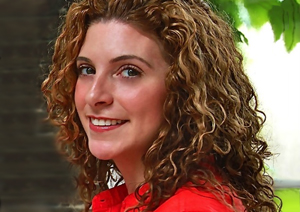 Name: Jennifer McGrath Bio: |
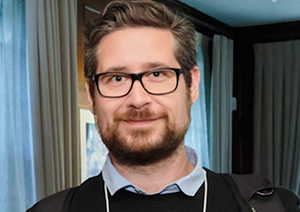 Name: Arthur Mortha Bio: |
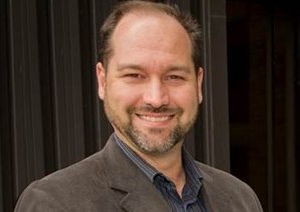 Name: Rodney Russell Bio: |
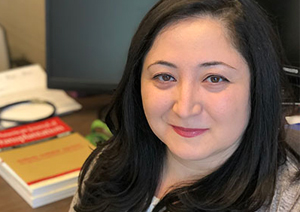 Name: Ruth Sapir-Pichhadze Bio: |
 Name: Sharon Straus Bio: |
 Name: Darrell Tan Bio: |
 Name: Tania Watts Bio: |
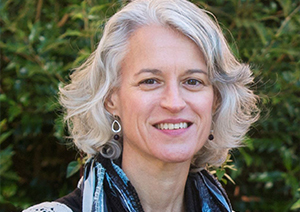 Name: Catherine Worthington Bio: |
 Name: John-Paul Michalski Bio: |
 Name: Shelly Bolotin Bio: Shelly's research program utilizes a multi-disciplinary approach to evaluate whether our population is adequately protected from vaccine-preventable diseases. Applying a public health lens, Shelly's studies combine epidemiological and microbiological methods to answer questions related to population immunity and vaccine effectiveness and determine our future risk for outbreaks or epidemics. Shelly received a BSc in Microbiology and Immunology from McGill University, an MSc and PhD in microbiology at the University of Toronto, and an MSc in Public Health at the London School of Hygiene and Tropical Medicine. |
Participants
| Profile: |
|---|
 Name: Nicole Alberts About You and Your Research: Dr. Nicole Alberts completed her PhD in Clinical Psychology at the University of Regina followed by a post-doctoral fellowship in the Department of Rehabilitation Medicine at the University of Washington. In 2016, she joined St. Jude Children's Research Hospital (Memphis, U.S.) as an Assistant Member and Attending Psychologist. She joined the Department of Psychology at Concordia University in Montreal in August 2020 and is an Associate Professor in Psychology. She also holds a Canada Research Chair (Tier 2) in Behavioural Health Intervention. The overarching goal of her research program is to improve behavioural health and psychological outcomes among individuals across the lifespan – with a focus on those diagnosed with childhood cancer. She also uses digital health approaches to develop and test interventions targeting pain and psychological outcomes. As a clinical health psychologist, Dr. Alberts has broad clinical experience spanning clinical health psychology and rehabilitation psychology in pediatric and adult populations. |
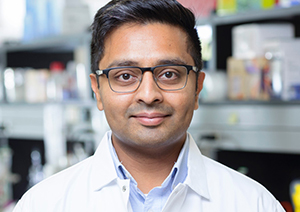 Name: Arinjay Banerjee About You and Your Research: Dr. Arinjay Banerjee (PhD) completed his PhD at the University of Saskatchewan in 2018. His doctoral thesis was awarded the University's Best Life Sciences thesis award and the Governor General's Gold medal. Dr. Banerjee completed his postdoctoral training as a Natural Sciences and Engineering Research Council of Canada (NSERC) fellow at McMaster University (2018-2021), during which he was also appointed as a Visiting Scientist at the University of Toronto to combat the COVID-19 pandemic. His research group at VIDO investigates emerging bat-borne zoonotic viruses, such as coronaviruses, along with deciphering the immunological consequences of infection in reservoir species (e.g., bats) and spill over mammalian species (humans and agricultural animals).
|
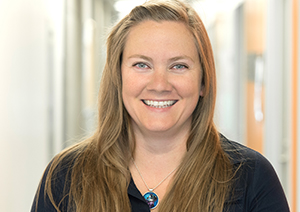 Name: Marie-Claude Bourgeois-Daigneault About You and Your Research: I am an early career investigator at the CRCHUM in Montreal since 2018. Our lab investigates various aspects of oncolytic virotherapy and develop cancer vaccines using these viruses at platforms. |
 Name: Sarah Buchan About You and Your Research: Sarah Buchan is a Scientist at Public Health Ontario (PHO) in Health Protection where she conducts applied public health research related to the epidemiology of vaccine-preventable and other infectious diseases. Her interests include studying the burden of vaccine preventable diseases, assessing vaccine effectiveness, and estimating vaccine coverage. Sarah holds a PhD in Epidemiology and is an Assistant Professor at the Dalla Lana School of Public Health, as well as an Adjunct Scientist at ICES. Prior to the pandemic, Sarah was focussing on estimating the burden of RSV in high-risk populations using linked laboratory and health administrative data. Since supporting PHO's COVID-19 Incident Management System from early 2020, she has contributed to analyses related to COVID-19 burden, transmission, variants of concern, and immunization. |
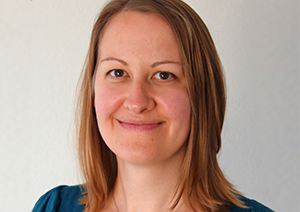 Name: Che Colpitts About You and Your Research: Dr. Colpitts completed a PhD at the University of Alberta, followed by postdoctoral training at the Université de Strasbourg (France) and University College London (UK), focusing on hepatitis C virus. Since starting at Queen's University in August 2019, the Colpitts lab studies virus-host interactions of positive-sense RNA viruses (hepatitis C virus, dengue virus and coronaviruses). One research theme focuses on the roles of glycans in coronavirus entry and pathogenesis. Another research theme aims to determine the roles of cellular cyclophilins in the replication of positive-sense RNA viruses, focusing on the roles of cyclophilins in viral evasion and antagonism of cellular antiviral responses. Finally, we are characterizing how cells sense and respond to virus-induced rearrangement of intracellular membranes during positive-sense RNA virus replication. Overall, we aim to identify antiviral strategies that are broadly active against emerging and currently untreatable positive-sense RNA viruses. |
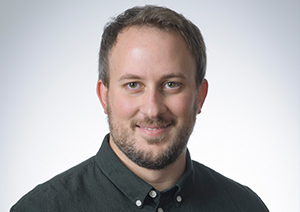 Name: Jean-Phillippe Côté About You and Your Research: My training started at the Université de Sherbrooke studying biochemistry. I then began my graduate studies in molecular microbiology at the Université de Montréal under the supervision of Dr. Michael Mourez. After my PhD, I joined the group of Dr Eric Brown at McMaster University as a postdoctoral fellow to learn about systems biology and antibiotic drug discovery. I am now back at Université de Sherbrooke since Fall 2019 as an Assistant Professor. The overall objective of my research program is to define novel targets for the development of new antibiotics in conditions mimicking the environment encountered by pathogens within a host. Among other things, bacterial pathogens encounter and interact with several other microbes within a host. My group uses state-of-the-art global and systematic approaches to define and characterize pathways that are important during interbacterial interactions. |
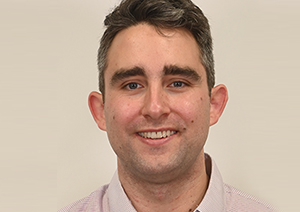 Name: Locke Davenport Huyer About You and Your Research: Dr. Locke Davenport Huyer is an Assistant Professor in the Department of Applied Oral Sciences, Department of Microbiology & Immunology, and the School of Biomedical Engineering at Dalhousie University. He obtained a B.Eng. from Queen's University in 2014, and a PhD in from the University of Toronto in 2019, both in Chemical Engineering. He completed postdoctoral training at Johns Hopkins University School of Medicine focused on characterization of implant associated inflammation. His research focuses on the interface of biomaterials with host immunity, with focus on understanding the drivers to dysregulated inflammation that cause implant fibrosis. This research holds a translation focus on harnessing the tools of inherent immunoregulatory mechanisms to design new materials that are instructive of inflammation. |
 Name: Georgia Dewart About You and Your Research: Dr. Georgia Dewart is an assistant professor in the Faculty of Health Disciplines at Athabasca University. As a registered nurse, she has clinical experience working in labour and delivery and STBBI clinic services within Alberta. As a registered nurse, she witnessed the challenges many patients, especially those within marginalized communities, have navigating the health care system. This realization prompted her to return to graduate studies and her doctoral research centred on the experiences of mothers who disclosed substance use during pregnancy and early postpartum. More recently, her research has focused on health equity, nursing practice, nursing education and women's health. |
 Name: Francesca Di Cara About You and Your Research: My research is focused on immune metabolism. We aim to define mechanisms by which lipids and redox metabolism control the innate immune response. Specifically, we are interested in defining the role of peroxisomes, pivotal metabolic organelles present virtually in every eukaryotic cell, in modulating immune responses to microbial challenge, and how microbial pathogens manipulate these organelles for their own nefarious purposes. Our interest in metabolic pathways in immune responses and host-pathogen interactions has its foundation on growing evidence that a large number of human immune deficiency and inflammatory diseases have at their source defects in metabolic signaling. In the past five years, I provided the first demonstration of peroxisome (ubiquitous metabolic organelles essential for organism health) direct involvement in immune defense, host-pathogen interaction and tissue homeostasis. Our research relies on the use of Drosophila melanogaster, a genetically amenable model system with few genetic redundancies and a vast arsenal of genetic tools that facilitate the elucidation of a previously unexplored functional role of peroxisomes in cellular and systemic immune responses. Peroxisome functions are highly conserved between fly and mammals and Drosophila is a long-established model system to study the innate immune system as many of the innate immune pathways were first identified and characterized in Drosophila and then found to function analogously in humans. My team validate the results gathered from the Drosophila system in mouse and humans with the intention to understand the importance of peroxisomes in the development of immune disorders. We master genetics, cutting-edge cell biology approaches, metabolomics and live imaging techniques to define peroxisome-dependent immune metabolic signaling. In our last work we identified distinct lipids necessary to mount immune response in macrophages that exclusively rely on peroxisomes. Using lipidomics and lipid reporter tracking in live-imaging approaches, we dissected how some of the identified lipids control macrophages response to infection in fly and mouse models and identified in peroxisome-lipid milieu markers of inflammations in immune disorders. |
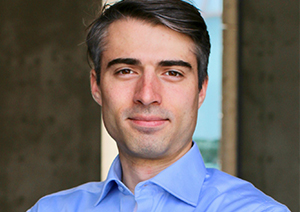 Name: Landon Edgar About You and Your Research: Landon is a chemical immunologist with expertise in high-dimensionality single cell analysis technologies. As a PhD student in the Department of Chemistry at the University of Toronto, Landon joined an interdisciplinary team that developed a series of chemical probes that enabled visualization of how cancer cells 'breathe' within a solid tumour. Following graduate school, Landon engaged in postdoctoral work at The Scripps Research Institute in California. Here, he used technologies from a range of disciplines to probe the mechanisms through which immune cells communicate via complex surface-tethered carbohydrates (glycans). Now as an Assistant Professor in the Department of Pharmacology & Toxicology at the University of Toronto, Landon is leading an interdisciplinary team of researchers to better understand the fundamental roles of immune cell glycans in health and disease. Ultimately, the research group aims to develop glycan engineering technologies for programming synthetic immune responses as a next generation strategy for immunotherapeutic discovery and design. |
 Name: Omar El-Halfawy About You and Your Research: Omar El-Halfawy is a Canada Research Chair in Chemogenomics and Antimicrobial Research and Assistant Professor in Biochemistry at the University of Regina. His research group is actively working towards solutions for the current antibiotic crisis; his team employs an interdisciplinary approach encompassing microbiology, biochemistry, molecular and chemical biology, and chemogenomics to uncover novel antibiotic resistance and microbial virulence mechanisms and discover new antimicrobial strategies. El-Halfawy received his B.Sc. in Pharmaceutical Sciences and M.Sc. in Pharmaceutical Microbiology from Alexandria University, Egypt. He completed his Ph.D. in Microbiology and Immunology at Dr. Miguel Valvano's lab at the University of Western Ontario, focusing on mechanisms of intrinsic antibiotic resistance mediated by metabolites and other bacterial small molecules. El-Halfawy completed a postdoctoral fellowship at Dr. Eric Brown's lab at Michael G. DeGroote Institute for Infectious Disease Research at McMaster University, where he explored novel solutions to target multi-drug resistant bacteria. |
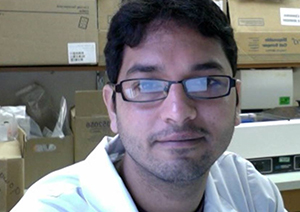 Name: Amit Gaba About You and Your Research: I am currently working as a postdoctoral fellow at Department of Biochemistry, Microbiology, and Immunology, University of Saskatchewan, Canada. I received my DVM degree from Gujarat Agricultural University (GAU), in India. I then completed my M.Sc. in veterinary microbiology at Anand Agricultural University, India. Afterwards, I worked for 5 years at Hester Biosciences Limited, a vaccine manufacturing company in India. In 2011 I joined the Ph.D. program at Department of Veterinary Microbiology at University of Saskatchewan where I studied Adenovirus. After my PhD I worked as a postdoctoral fellow at VIDO-Intervac and studied Influenza A virus for 2 years. During this period, I also worked in CL3 facility at VIDO-Intervac. Currently I am working as a postdoctoral fellow in the Chelico lab and study the role APOBEC3 enzymes in restriction of HIV-1. My research interests and expertise include studying Virus-host interactions, viral pathogenesis, viral vector development and vaccine development. |
 Name: Jennifer Geddes-McAlister About You and Your Research: Dr. Jennifer Geddes-McAlister is Assistant Professor in the Department of Molecular and Cellular Biology at the University of Guelph since July 2018. She is an expert in mass spectrometry-based proteomics and her research program defines the relationship between a host and pathogen to uncover new strategies for preventing infection and overcoming resistance in both medically- and agriculturally relevant diseases. Since beginning her independent position, she has published over 40 papers, raised over $5 M in funding through grants, awards, and industry partnerships, and currently, manages a group of over 30 trainees. Dr. Geddes-McAlister is the elected Vice President, Communications, and elected Board member for the Canadian National Proteomics Network (CNPN), co-Founder of the Canadian Proteomics and Artificial Intelligence Research and Training Consortium, and the elected Western Hemisphere Diversity Candidate for the Human Proteome Organization (HUPO). She recently founded 'Moms in Proteomics', developed the CNPN Unity initiative, and is co-creator of Humans of HUPO. She was recently awarded a Banting Foundation Research Award for her novel approach to combatting fungal pathogens. |
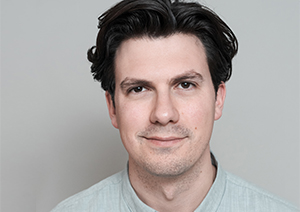 Name: Simon Grandjean Lapierre About You and Your Research: I'm an infectious disease specialist and clinical scientist. I lead a translational research program focused on Tuberculosis control in Canada and abroad, notably in Madagascar. My research activities principally focus the impact assessment of new innovative technologies and molecular diagnostic tools on Tuberculosis control. This includes Molecular diagnostics (Molecular epidemiology and transmission, Molecular diagnostics from primary clinical samples) and Innovative technologies (Digital cough monitoring and artificial intelligence for screening and clinical management of respiratory diseases). |
 Name: Ingrid Handlovsky About You and Your Research: My research focus, broadly speaking, is health equity and examination of how our social environments (inclusive to interpersonal, historical, and political dynamics) influence health practices, experiences, and ultimately, outcomes. My research is informed by social justice and critical perspectives to draw attention to the structural conditions that subject individuals, groups, and populations to disadvantage and subsequently, poor health outcomes. My dissertation focused specifically on enhancing equity with gender and sexual identity and my most recent project is an examination of how the sociohistorical context of HIV has influenced older, self-identifying gay men's constructions of quality of life (QOL) and health perspectives. |
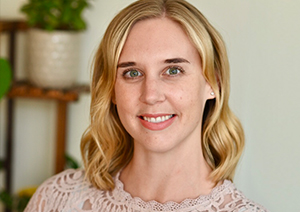 Name: Genelle Healey About You and Your Research: Dr Genelle Healey undertook her PhD in Nutritional Science at Massey University in New Zealand where she determined what influence habitual dietary fibre intake has on gut microbiota response to a prebiotic (fibre) intervention. Prior to commencing her PhD, Genelle worked as a Dietitian caring for patients with various gastrointestinal diseases. In 2017, Genelle moved to Vancouver to start a postdoctoral fellowship with Drs Bruce Vallance and Kevan Jacobson at the University of British Columbia. The focus of her research is to better understand the impact nutrition, particularly fibre, has on the gut microbiome and disease outcomes for patients with IBD. Genelle's future research aspirations include investigating the effect diet has in modulating the mycobiome (fungi) and virome (viruses), as most research only focuses on bacterial changes. She also plans to undertake future research to better understand the factors involved in inter-individual responses to dietary interventions and immunotherapy. |
 Name: Sabrina Hoa About You and Your Research: I am a rheumatologist and clinical researcher at the Centre hospitalier de l'Université de Montréal. As part of my training, I completed a Masters in Epidemiology at McGill University and a post-doctoral fellowship in systemic sclerosis (scleroderma) and interstitial lung disease. The ultimate goal of my research program is to develop better risk stratification and treatment strategies early in the disease process in order to decrease the morbidity and mortality burden of pulmonary fibrosis and other internal organ complications for patients with scleroderma. I am a member of the Canadian Scleroderma Research Group, which is a network of scleroderma experts who are contributing to a nationwide observational cohort of scleroderma patients. |
 Name: Carolyn Jack About You and Your Research: I'm a dermatologist and PhD-trained Immunologist with expertise in molecular biology, cellular immunology, immunophenotyping of primary human cells and tissues, in vitro human pre-clinical modeling of disease, and skin biospecimen-enabled clinical trials. My clinical work and research are focused on adult atopic dermatitis (AD), the most common and most burdensome skin disorder worldwide, affecting 5-10% of adults in developed countries. My research goal is to identify disease-modifying interventions in chronic AD. I established and operate the first Canadian disease-specific human skin and blood immunophenotyping lab (RI-MUHC), with a research program and immunophenotyping platform for investigating in situ and ex vivo mechanisms of chronic inflammation with adult AD patient skin, swabs, and blood. Patients are recruited from my specialized clinic, the MUHC Center of Excellence for Atopic Dermatitis, the first tertiary care centre in Canada dedicated to adult AD. Clinical research with biospecimens is performed on-site and processed in my lab. |
 Name: Raynell Lang About You and Your Research: I am an Infectious Disease physician that recently finished my residency training in 2020 and have been completing a post-doctoral fellowship in HIV epidemiology at Johns Hopkins University over the past 2 years. It is my goal to become an Infectious Disease clinician-scientist, conducting infectious disease epidemiologic research with a specialized focus in HIV research and care. My research interest is evaluating risk factors and outcomes associated with coinfections and comorbidities in persons with infectious diseases including people with HIV. I aim to integrate laboratory-based, patient-orientated, and population-based research to facilitate a greater understanding of infectious disease processes, leading to improvements in the care and outcomes of patients. |
 Name: Amy Lee About You and Your Research: Human newborns are highly vulnerable to infections with ~7,000 newborn deaths occurring every day, and this death toll is further compounded by the emergence of antimicrobial resistance (AMR). One particularly important AMR pathogen that causes neonatal sepsis in low and middle-income countries is Klebsiella pneumoniae, which is found ubiquitously in the environment, including in water, soil, plants, insects, aquatic and agricultural animals, and humans. The overarching goal of my research program is to identify the mechanisms by which the AMR pathogen K. pneumoniae cause disease in neonates and the resulting neonatal host immune responses upon infection. We use comparative bacterial genomics, transcriptomics, phenomics (e.g. growth in different conditions) and microbial genome-wide association analyses to provide mechanistic insights into interactions between AMR pathogens and the host by: (1) determining how AMR pathogens maintain and disseminate AMR genes in diverse environments and conditions, (2) characterizing molecular dynamics of host-AMR pathogen interactions, and (3) defining host immune responses during infection, focusing on the critical area of neonatal sepsis. Our integrated bioinformatic and experimental approaches have successfully identified a number of previously uncharacterized genes and showed that they are involved in either virulence or AMR in pathogens. |
 Name: Ashish Marwaha About You and Your Research: Ashish Marwaha is a clinician scientist focusing on complex immune dysregulation disorders. He's used a collaborative approach to build a care pathway that will combine the aims of diagnosing, discovering, and treating patients with rare complex immune dysregulation disorders. His research focus includes the topical areas of whole genome sequencing, polygenic risk, functional assay development using CyTOF mass spectrometry platforms and machine learning integration of multi-omic data sets. He ultimately wants to implement precision therapy for this patient population. |
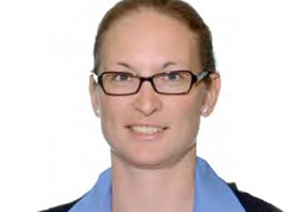 Name: Vanessa Meier-Stephenson About You and Your Research: I'm an Infectious Diseases physician (MD PhD) with an interest in chronic viral hepatitis (largely HBV) and the study of viral-host pathogenesis for this and other viruses. I use a combination of computational, biophysical, and molecular virology methods to explore various viral DNA/RNA and host protein interactions to gain further understanding in viral pathogenesis and evaluate unique approaches to developing therapeutics. |
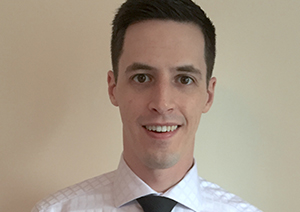 Name: Daniel Mulder About You and Your Research: Dr. Mulder is a pediatric gastroenterologist who studies the role of systems immunology in inflammatory bowel disease (IBD). IBD is believed to be caused by dysregulation of the immune system through a variety of disrupted processes. These processes and their connection to disease characteristics are complex and poorly understood. Dr. Mulder's research program aims to use laboratory-based immunophenotyping techniques to create molecular "fingerprints" of individual IBD patients. This "fingerprint" will allow for a personalized approach to treatment, directly targeting the aberrant pathways. Ultimately, through redefining IBD classification by the underlying molecular processes, Dr. Mulder hopes to improve IBD treatment success rates and improve patient outcomes. |
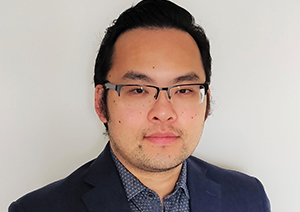 Name: Henry Nguyen About You and Your Research: My laboratory is interested in understanding the role of the intestinal microbiome in mediating liver disease outcomes via the gut-liver axis. Specifically, medical therapy for non-alcoholic fatty liver disease (NAFLD) and autoimmune liver disease is currently an area of unmet need. By studying the effects of the microbiome in both the liver and intestinal microenvironment, this may highlight new therapeutic avenues that can be further studied and ultimately utilized in the patient care setting. |
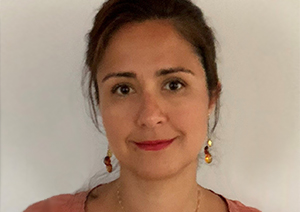 Name: Maryam Piram About You and Your Research: I am pediatrician with a particular interest in diseases interfacing between dermatology and rheumatology. After a MD degree, I completed 2 fellowships, one in pediatric rheumatology in France (CHU Bicêtre, University of Paris-Sud,2006-2009) and another in pediatric dermatology in Canada (CHU Sainte Justine, University of Montreal,2010-2011). I worked >10 years in the French national reference center for auto-inflammatory diseases. After a Masters degree (University Paris XII), I completed a Ph.D. in Public Health (University Paris-Saclay) in 2017 with a program devoted to the epidemiology of IgA vasculitis. I moved in Montreal at the end of 2018. I am currently head of the Pediatric Dermatology unit in CHU Sainte Justine and holder of a FRQS Clinical Research Scholar J1 Career Award (2020-2023). My two main areas of research are childhood vasculitis and auto-inflammatory diseases, and my research program focuses on development and validation of tools to evaluate outcome in these rare diseases. |
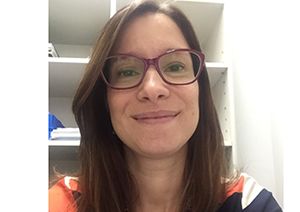 Name: Barbara Porto About You and Your Research: Dr. Porto is an Assistant Professor in the Department of Medical Microbiology and Infectious Diseases. She is an early career researcher and joined the University of Manitoba in September 2021. The Porto lab's research program aims to understand the mechanisms of disease pathogenesis associated with respiratory viral infections and to discover new therapeutic targets to reduce the respiratory morbidity caused by different respiratory viruses (respiratory syncytial virus, SARS-CoV-2, rhinovirus). One of the goals of our research program is to uncover how respiratory viruses trigger the death of neutrophils and macrophages, specialized innate immune cells and the role of innate cell death on disease pathogenesis. We use both in vitro and in vivo (mouse models) experiments to understand the mechanisms underlying disease pathophysiology of pulmonary viral infections. |
 Name: Jérémy Postat About You and Your Research: I'm a French postdoc fellow in my 4th year in Judith Mandl's lab. I'm interested in immune cell dynamics and currently working on an exciting project investigating the role of mechanosensing on T cell behavior and tissue-resident memory CD8+ T cell development. I'm delighted to be part of this meeting and can't wait to talk about science and professional development. |
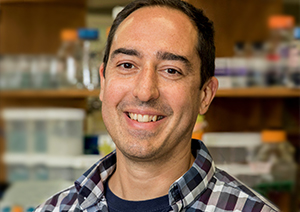 Name: Gerd Prehna About You and Your Research: We study how bacteria communicate with their hosts, how they communicate with each other, and how they communicate with other micro-organisms using a combination of structural biology, biochemistry, and molecular biology. Currently we are studying the versatility of the type six secretion system using Salmonella and Pseudomonas as model systems. We are also studying the role of phage proteins in the biology of Streptococcus pyogenes. |
 Name: Priyanka Pundir About You and Your Research: Dr. Priyanka Pundir completed her Ph.D. in the laboratory of Dr. Marianna Kulka at the National Research Council Canada, focusing on the non-IgE-dependent pathways of mast cell activation. She elucidated the function of orphan G-protein-coupled receptors (GPCRs) in the recruitment of mast cells to sites of inflammation. For her postdoctoral work, she joined the laboratory of Dr. Xinzhong Dong – the discoverer of the Mas-related-GPCRs and world-renowned leader in the field of somatosensation – at Johns Hopkins University as a CIHR Fellow. Here, Dr. Pundir discovered a mast cell-specific receptor crucial for drug hypersensitivities and further identified its role in antibacterial defense. In March 2022, Dr. Pundir will start her lab at the University of Guelph, where she will combine mouse and microbial genetics, receptor pharmacology, sequencing, immunophenotyping, and infection models to elucidate how GPCRs act as sensors of the communication between the host and the microbes to regulate homeostasis and disease. |
 Name: Aaron Reinke About You and Your Research: Dr. Aaron W. Reinke is an assistant professor in the Department of Molecular Genetics at the University of Toronto. Dr. Reinke did his graduate training at the Massachusetts Institute of Technology with Prof. Amy Keating, using biochemical approaches to determine how proteins correctly choose their interaction partners. As a Life Science Research postdoctoral fellow at the University of California, San Diego in the laboratory of Prof. Emily Troemel, Dr. Reinke studied parasite infections, using a unique and powerful system of a tractable host, C. elegans, and a coevolved intracellular eukaryotic parasite, N. parisii. Dr. Reinke started his laboratory in the fall of 2017 where he has received several young investigator awards including a 2019 Sloan Research Fellowship in Computational & Evolutionary Molecular Biology. Dr. Reinke's lab uses C. elegans and various microsporidia species to discover mechanisms of parasite evolution and the influence of parasites on hosts. |
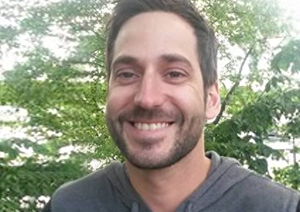 Name: Dominic Roy About You and Your Research: I have a PhD in Biochemistry with Specialization in Human and Molecular Genetics from the University of Ottawa where I studied oncolytic viruses as cancer therapeutics in Dr. John Bell's lab. I then completed my postdoc at McGill University in the laboratory of Dr. Russell Jones where I investigated the role of metabolism in supporting T cell function. In January 2022, I started my own lab in the cancer axis at the CRCHUM in Montreal. My lab studies oncolytic viruses, and our research aims to understand how metabolism regulates oncolytic virus replication and to manipulate tumor cell metabolism to improve oncolytic virotherapy. Since one of the mechanisms by which oncolytic viruses work is the induction of anti-tumor immunity, we are also studying the impact of metabolism on T cell function in the context of cancer immunotherapy. |
 Name: Deanna Santer About You and Your Research: During my graduate degree up until now, my research projects have focused on understanding how our immune responses are regulated during viral infections, after vaccination or during periods of chronic inflammation. I completed my PhD in Immunology at the University of Washington and then moved back to Canada for my postdoctoral work at the University of Alberta to study virus-host interactions including developing a research program studying the newest family of interferons called interferon-lambdas. I joined the Department of Immunology at the University of Manitoba on November 1, 2020, as an Assistant Professor and GSK Research Chair in Immunology of Infectious Diseases. After some delays establishing a lab during a pandemic and pivoting to study interferon-lambda treatment of mild COVID-19, I am excited to expand my team this year, attend conferences in-person (hopefully) and establish new collaborations. |
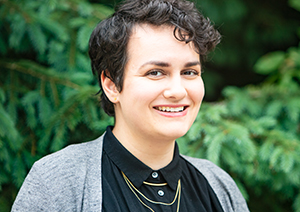 Name: Rebecca Shapiro About You and Your Research: Our lab studies fungal pathogens and uses genome editing and functional genomic tools to dissect the genetic mechanisms underpinning fungal virulence and antifungal drug resistance. |
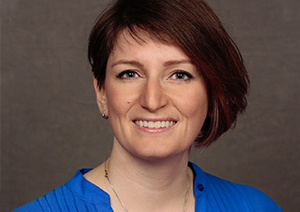 Name: Shayna Skakoon-Sparling About You and Your Research: Shayna Sparling has a PhD in Applied Social Psychology. She is currently a CIHR-funded postdoctoral research fellow with the HIV Prevention Lab at Ryerson University and is the National Team Manager for the Engage Study. Shayna also holds an Affiliate Faculty position with The Kinsey Institute at Indiana University. Shayna's research has primarily focused on motivated reasoning and how intra- and interpersonal factors influence sexual health decision-making and sexual negotiation - related to the prevention of STBBI transmission. In particular, her work examines the need to belong, with a focus on the roles of loneliness and social support in the health and well-being of gay, bisexual, and other men who have sex with men. |
 Name: Channakeshava Sokke Umeshappa About You and Your Research: My aspiration to become an immunologist started during my veterinary medicine degree. After completing my Master's in Veterinary Pathology and Immunology at the Indian Veterinary Research Institute, India, I moved to the University of Saskatchewan to pursue my Ph.D. in the field of Cancer immunology. Then, I pursued my postdoc and subsequently as Research Associate at the University of Calgary under Dr. Santamaria. After a long journey in my research training, I joined Dalhousie University as an Assistant Professor. Currently, my research program studies immunoregulation in chronic diseases, mainly autoimmunity and cancer. We employ cutting-edge systems and methods, including genetically modified murine systems, "omics" and synthetic biology approaches, high-parameter flow cytometry, and imaging, to understand the origins of the diseases and develop immunotherapies. We involve a leading-edge interdisciplinary team of established scientists, clinicians, and trainees to translate research findings into effective therapies. |
 Name: Matthew Sorbara About You and Your Research: I completed my PhD with Dr. Dana Philpott and Dr. Stephen Girardin at the University of Toronto. Here, I studied the roles of autophagy proteins and Nod-like receptors in epithelial cell responses to infection with invasive enteric pathogens, and how dysregulation of these responses could contribute to inflammatory conditions such as Crohn's Disease. As a postdoc, I worked with Dr. Eric Pamer at Memorial Sloan Kettering Cancer Center and the University of Chicago. I studied the mechanisms of the microbiota's colonization resistance against highly antibiotic-resistant Enterobacteriaceae and helped establish and characterize a biobank of commensal microbes in order to optimize live biotherapeutic design. I am excited to have joined the University of Guelph (September 2021). My laboratory will study the complex interactions between members of the microbiota, microbial crosstalk with the host, and the impact the intra-species diversity on the function of small microbial consortia. |
 Name: Giorgia Sulis About You and Your Research: Dr. Sulis is an infectious disease epidemiologist with clinical background and a strong interest in global health research. She received her medical degree (2011) and specialized in infectious and tropical diseases (2017) in Italy; during this time, she conducted clinical and epidemiological research primarily focused on tuberculosis and its coinfection with HIV, in collaboration with several international partners including the WHO. She subsequently expanded her research interests towards antimicrobial resistance, focusing on the use of antibiotics in low- and middle-income countries, and received her PhD in epidemiology from McGill University in 2021. In her current position of postdoctoral researcher at McGill, Dr. Sulis works in the area of vaccine epidemiology, while also cultivating her research interests in tuberculosis and antimicrobial resistance. |
 Name: Véronique Taylor About You and Your Research: I am interested in the evolutionary battle between bacteria and their phage predators. Bacteria are the most vulnerable to a phage outbreak when they form a community and so they use quorum sensing to drive the expression of anti-phage defense systems. I identified that Pseudomonas aeruginosa phages encode proteins which disrupt the quorum sensing cascade, effectively cutting phage defense at the source. We continue to study this process through infection assays, genetic manipulation of both P. aeruginosa and phages and detailed characterization of protein interactions. Before joining the lab of Dr. Karen Maxwell as a postdoctoral fellow, I obtained my PhD in the lab of Dr. Joe Lam at the University of Guelph where I studied lipopolysaccharide biosynthesis in P. aeruginosa. I also enjoy games in board, tabletop, or video form and camping in the summer. |
 Name: Ajitha Thanabalasuriar About You and Your Research: My lab is focused on understanding the interplay between innate immune cells particularly neutrophil interactions with bacteria. Using a combination of intricate in vivo models including intravital microscopy, my lab seeks to understand how changes in tissue environment caused by injury can mitigate changes to neutrophil antimicrobial function. Particularly, neutrophil chemotaxis and ability to clear bacterial infections is significantly modified when the cells are exposed to the cytokine TGF- ß. My lab has three main research focuses:
|
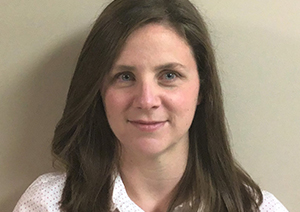 Name: Jenny-Lee Thomassin About You and Your Research: I recently joined the Department of Biochemistry, Microbiology and Immunology at the University of Saskatchewan as an assistant professor (May 2020). My research interests are focused on how bacteria interact with and shape their local environment. I am specifically interested in the molecular mechanisms involved in protein secretion, the targets of secreted proteins and the underlying mechanisms that promote bacterial survival within their infectious niche. Current work in my lab is focused on studying the bacterial type II secretion system (T2SS) in Klebsiella pneumoniae and pathogenic Escherichia coli. |
 Name: Christina Thornton About You and Your Research: I completed the MD/PhD program at the University of Calgary with my doctoral thesis on the role of the lower respiratory tract microbiome in cystic fibrosis (CF). I then recently went on to train in internal medicine residency and adult respirology fellowship at the University of Calgary. Currently I am at the University of Michigan doing postdoctoral training evaluating the role of the microbiome in CF disease. My career goals are to pursue the role of clinician scientist with a dedicated research program evaluating the microbiome in CF and other suppurative lung disease. |
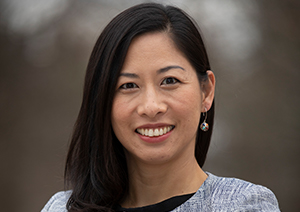 Name: Maria Tokuyama About You and Your Research: I'm an assistant professor in the department of microbiology and immunology at UBC. I obtained my PhD from UC Berkeley where I studied the regulation of NKG2D ligands during cytomegalovirus infection. I completed my postdoc training at Yale University in immunobiology where I investigated the impacts of endogenous retroviruses (ERVs) in systemic lupus erythematosus and in genital herpes simplex virus 2 infection. My research program builds on these studies to further elucidate the physiological role of ERVs in autoimmune diseases and in viral infections. We use a combination of virology, immunology, and bioinformatics techniques to probe cell-intrinsic and -extrinsic functions of ERVs in mouse and human cells. We also rely on patient data to inform us of clinical relevance. Ultimately, our goal is to identify key processes that can be targeted to reduce detrimental inflammation in autoimmune diseases, while boosting beneficial responses to combat viral infections. |
 Name: Sue Tsai About You and Your Research: Sue is an assistant professor in the department of medical microbiology and immunology in the University of Alberta. Her lab studies the immune-metabolic crosstalks in metabolic diseases such as type 1 and type 2 diabetes. After getting an honors degree in molecular biology and biochemistry, she went to the University of Calgary and worked on developing antigen-specific immunotherapies for type 1 diabetes, under the supervision of Dr. Pere Santamaria. She then moved further east and did her postdoc with Dr. Daniel Winer at the University Health Network, which led to her current research path. The present foci of Tsai Lab's research are: i) studying how insulin receptor signalling regulates anti-viral and anti-tumor immunity ii) dissecting the role of maternal vs infant IgA in type 1 diabetes pathogenesis. |
 Name: Anil Kumar |
 Name: Jim Sun About You and Your Research: I obtained my PhD from UBC and completed my postdoctoral training at the University of Alabama in Birmingham. During my training, I made significant contributions to the field of phagosome biogenesis and host-pathogen interactions between the macrophage and Mycobacterium tuberculosis. I started my independent faculty position at the University of Ottawa in July 2017 and my research program is focused on understanding host immunity to tuberculosis. We use multidisciplinary approaches (cellular microbiology, immunology, medicinal chemistry, multi-omics) to improve our understanding of macrophage biology, cell signaling pathways, and host-pathogen interactions in the context of infection by Mycobacterium tuberculosis and other bacterial pathogens. Our goal is to use this knowledge to develop and advance host-directed therapy for bacterial infections. |
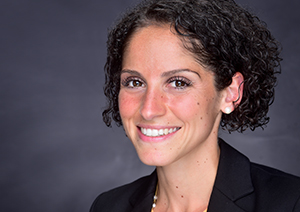 Name: Christina Guzzo About You and Your Research: Dr. Christina Guzzo is an Assistant Professor of Virology at the University of Toronto Scarborough in the Department of Biological Sciences. Her lab studies the surface of the HIV virus, in order to better understand HIV infection and identify novel antiviral targets. Her research is also developing new tools to characterize proteins present on the surface of a broad range of virions, with an emphasis of detecting human proteins that viruses can hijack for their benefit. Dr. Guzzo trained as a post-doctoral fellow at the National Institute of Allergy and Infectious Diseases (NIAID) at the National Institutes of Health (NIH) in Bethesda, MD under the mentorship of Dr. Anthony Fauci. Her post-doctoral studies included the identification of a novel anti-HIV chemokine secreted by host immune cells, and a discovery that HIV can incorporate human integrins into its viral envelope to alter virus trafficking. |
 Name: Amy Gillgrass About You and Your Research: |
 Name: Alexander Hynes About You and Your Research: Dr. Hynes joined McMaster as an Assistant Professor in Sept 2017. He's been working on phages since 2008 and intends to continue doing so until he understands them. Working in the Farncombe Family Institute for Digestive Health Research has allowed him to pair his expertise on phages with world-class research programs centered on the human gut microbiome. |
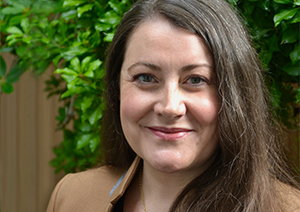 Name: Lorena Braid |
 Name: Kyle Burrows |
 Name: Richa Pandey |
 Name: Anil Kumar |
 Name: Wael Elhenawy |
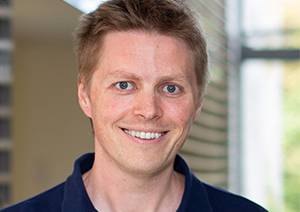 Name: Christopher Lohans |
 Name: Zulma Rueda |
Organizing Committee
Planning Committee
| Profile: |
|---|
 Name: Shelly Bolotin Bio: |
 Name: Keith R. Fowke Bio: |
 Name: Amy Gillgrass Bio: |
 Name: Arthur Mortha Bio: |
 Name: Ruth Sapir-Pichhadze Bio: |
 Name: Catherine Worthington Bio: |
 Name: Charu Kaushic Bio: |
CIHR-III Working Group
| Profile: |
|---|
 Name: Suzete Dos Santos Bio: She is passionate of the work of the infection and immunity research community and has worked on various infection control related initiatives (SARS, Sexually Transmitted Blood Borne Infections, Ebola, Antimicrobial Resistance, Lyme, Zika and COVID-19) in her various positions within the Government of Canada. |
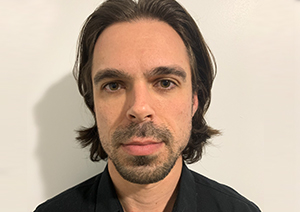 Name: Eric Hewitson Bio: |
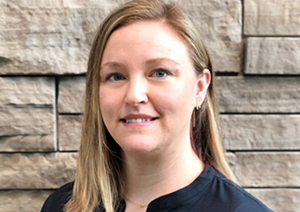 Name: Tiffany Pattison-MacLeod Bio: |
Special ThanksDanielle Vitali Yasnee Beeharry Sharon Ralph |
Resources
CIHR offers a number of learning modules to help you gain in-depth knowledge about our programs, processes and tools. These modules are intended to ensure that all participants in the peer review process have the same base knowledge of the processes and policies in order to conduct effective and fair peer review.
We have highlighted the following that would be helpful for you to review in advance of the New Investigator Forum.
- Learning for participants in peer review
- Modules
- Conducting Quality Reviews (7 min.)
- Bias in Peer Review (30 min.)
- Peer Review Manual – Project

Excellence in peer review
Sex and gender considerations in peer review*
Complete one of the following modules based on your methodological expertise:
Contact
CIHR Institute of Infection and Immunity
McMaster University
1280 Main Street West
MDCL 4025
Hamilton, Ontario
L8N 3Z5
Email: III-IMII@cihr-irsc.gc.ca
Twitter: @CKaushic
- Date modified: